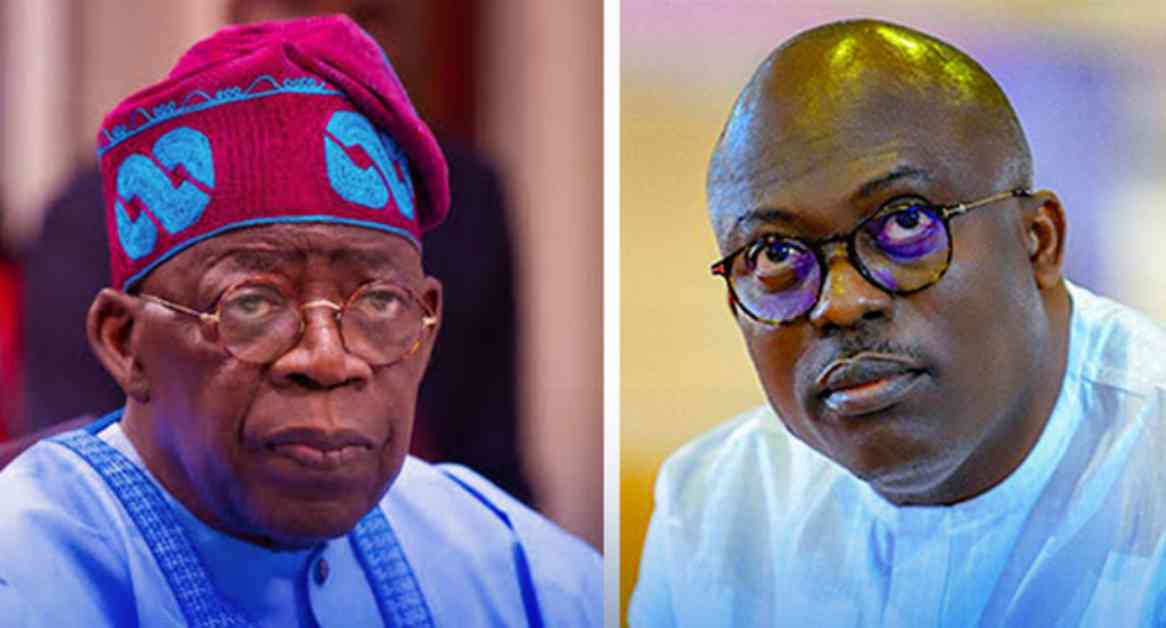Lawyers Slam Tinubu for Unconstitutional Suspension of Fubara
In a surprising turn of events this week, President Bola Tinubu made a controversial decision to suspend Rivers State Governor, Siminalayi Fubara, his deputy, Ngozi Odu, and all elected members of the House of Assembly of Rivers State for a period of six months. This announcement, made during a live broadcast, has sparked outrage among legal practitioners who have criticized the move as unconstitutional.
Tinubu justified his actions by citing the ongoing political turmoil in the state, which he believes necessitates drastic measures to restore stability. He appointed retired Vice Admiral Ibok-Ette Ibas as the state’s administrator to oversee governance in the interim, emphasizing that the judiciary in Rivers State will continue to function independently.
The president’s declaration, made under Section 305 of the 1999 Constitution, aims to bring peace and order back to the state. However, legal experts have raised concerns about the legality of Tinubu’s decision, arguing that a President does not have the authority to suspend a democratically elected governor.
Expert Opinions on the Matter
One prominent human rights lawyer based in the United Kingdom, Morakinyo Olasupo, highlighted the constitutional safeguards in place for removing or suspending governors. He emphasized that such actions must follow due legal processes, including impeachment by the state House of Assembly or court order, as outlined in the 1999 Constitution.
Olasupo also pointed out that the Supreme Court has set a precedent regarding the impeachment of governors, clarifying that these processes must adhere to specific legal requirements. He stressed that the President’s power to declare a state of emergency does not automatically grant him the authority to suspend or remove a governor without due process.
In contrast, Ridwan Oke, the Principal Partner at Iris Attorneys LP, defended the President’s decision to declare a state of emergency in Rivers State. While acknowledging the heightened political crisis in the region, Oke criticized the suspension of Fubara, his deputy, and the state lawmakers as lacking merit and violating the constitution.
Oke referenced the 1963 Constitution, which allows for the suspension of a sitting governor, noting that the 1999 Constitution does not provide such provisions. He argued that the state of emergency declaration should be based on specific criteria, such as war, political unrest, or a breakdown of law and order, which must be supported by the governor or a two-third majority of the house.
Legal Implications and Controversies
The crux of the debate surrounding Tinubu’s actions lies in the interpretation of constitutional provisions and the separation of powers between the executive, legislative, and judicial branches of government. While some legal experts support the need for decisive measures in times of crisis, others caution against overstepping legal boundaries and undermining democratic principles.
The suspension of elected officials without due process raises questions about the rule of law and the sanctity of democratic institutions. As the controversy unfolds, the legal community continues to grapple with the implications of Tinubu’s unprecedented move and its potential impact on the country’s political landscape.
In the midst of these legal debates and constitutional interpretations, the fate of Rivers State hangs in the balance. The challenge now is to navigate the complex legal terrain while upholding the principles of justice, fairness, and constitutional governance. As Nigerians await further developments in this unfolding saga, the need for clarity, transparency, and adherence to legal norms remains paramount.












